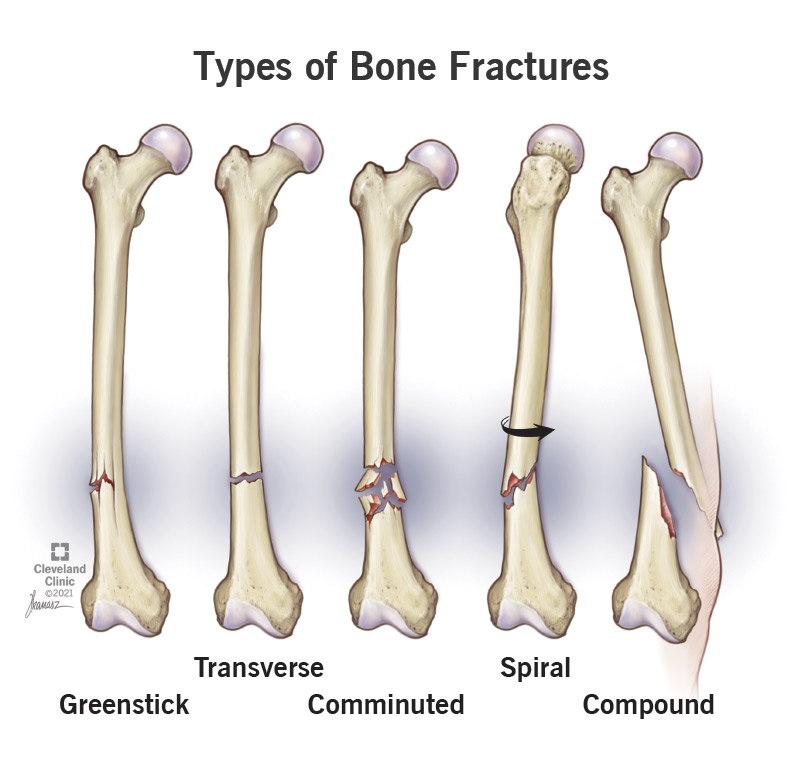What is Complex Fracture Management?
Complex fracture management refers to the specialized treatment of fractures that involve multiple broken bones, displaced bones, or fractures that affect joint structures and soft tissues. These types of fractures typically require advanced surgical intervention and rehabilitation to restore proper function and mobility.
Key Objectives of Complex Fracture Management:
- Proper alignment and stabilization of the fractured bone.
- Minimization of complications such as infection, nerve damage, or blood vessel injury.
- Restoration of function and mobility of the affected limb or body part.
- Support for the healing process with appropriate rehabilitation and physical therapy.
Why Choose India for Complex Fracture Management?
India has emerged as a leading destination for complex fracture management, offering world-class orthopedic care at an affordable cost. With a combination of highly skilled surgeons, advanced medical technologies, and patient-centric services, India provides an ideal environment for complex fracture treatment.
Advantages of Choosing India for Complex Fracture Management:
- Affordable Treatment: Save significantly on medical costs compared to Western countries without compromising on the quality of care.
- Top-tier Hospitals: Access to state-of-the-art medical facilities equipped with the latest technologies in orthopedic care.
- Skilled Surgeons: Renowned orthopedic surgeons with extensive experience in treating complex fractures and trauma cases.
- Comprehensive Care: Full-range services, including pre-surgical evaluation, surgery, and post-operative rehabilitation, all under one roof.
- Timely Treatment: No long waiting periods for surgery or consultations. Immediate access to world-class care.
Types of Complex Fractures Managed in India
India provides advanced treatment for a wide range of complex fractures. The orthopedic surgeons in India are experienced in handling cases involving multiple fractures, bone dislocations, and fractures with soft tissue involvement.
1. Open Fractures
- Description: The bone breaks and pierces the skin, increasing the risk of infection.
- Treatment: Surgical intervention is necessary to clean the wound, stabilize the bone, and prevent infection.
2. Comminuted Fractures
- Description: The bone breaks into multiple pieces, often requiring surgical fixation with plates, screws, or rods.
- Treatment: Surgery to realign and stabilize the bone fragments, followed by a rehabilitation program.
3. Fractures with Joint Involvement
- Description: Fractures that affect the bones of the joints, such as in the elbow, knee, or shoulder, can lead to long-term complications like arthritis.
- Treatment: Surgical repair of the fracture, and in some cases, joint replacement or reconstruction may be required.
4. Fractures with Soft Tissue Damage
- Description: Fractures that also involve ligaments, tendons, or muscles.
- Treatment: Surgical fixation of the fracture along with repair of the damaged soft tissues.
Symptoms Indicating the Need for Complex Fracture Management
Complex fractures often involve significant pain and disability, requiring prompt medical attention. If you experience any of the following symptoms, it’s essential to seek medical advice immediately:
- Severe pain at the fracture site that doesn’t improve with pain medication.
- Visible deformity or abnormal positioning of the limb or joint.
- Difficulty moving the affected part of the body.
- Open wounds or bleeding at the fracture site.
- Numbness, tingling, or loss of circulation in the affected area.
The Complex Fracture Management Procedure
The treatment for complex fractures depends on the type and severity of the fracture. Typically, the process follows a systematic approach to ensure optimal recovery and function.
Step-by-Step Process:
1. Pre-Surgical Evaluation:
- Imaging tests like X-rays, CT scans, or MRIs to assess the extent of the fracture and associated soft tissue damage.
- Evaluation of the patient’s overall health to plan the surgical procedure.
2. Anesthesia Administration:
- Local or general anesthesia, depending on the location and severity of the fracture.
3. Surgical Intervention:
- The surgeon will realign the fractured bone(s) and stabilize them using plates, screws, rods, or external fixation devices.
- In cases of open fractures, the wound is cleaned, and the bone is stabilized, while addressing any soft tissue damage.
4. Post-Surgical Monitoring:
- Close monitoring in the recovery room to manage pain and prevent infection or complications.
- X-rays or scans to ensure proper alignment and healing of the bone.
5. Rehabilitation and Recovery:
- Physical therapy to regain strength, mobility, and function.
- Regular follow-ups to monitor the progress of healing and ensure no complications arise.
Benefits of Complex Fracture Management
- Pain Relief: Surgical stabilization and appropriate pain management reduce pain and discomfort.
- Restored Functionality: Correct alignment and stabilization lead to improved limb function and movement.
- Quick Recovery: Advanced techniques help to speed up recovery time and reduce the risk of complications.
- Long-Term Health: Proper management of complex fractures reduces the risk of future complications such as arthritis or permanent disability.
Why Choose Healtour Solutions for Complex Fracture Management?
Healtour Solutions is committed to providing top-notch care for complex fracture management in India. We partner with leading orthopedic hospitals and renowned surgeons to ensure our patients receive world-class treatment at affordable prices.
Our Key Offerings:
- Collaboration with highly skilled orthopedic surgeons and world-class hospitals.
- Tailored treatment packages to suit your budget and medical needs.
- Support throughout the process, from visa assistance to post-surgery rehabilitation.
- Dedicated patient care teams that ensure a seamless medical journey.
Post-Surgery Recovery and Care
Post-surgery recovery depends on the type of fracture and the individual’s overall health. Following the recommended recovery guidelines is crucial to achieving the best outcomes.
Key Recovery Tips:
- Follow your surgeon’s guidelines for mobility and activity restrictions.
- Participate in physical therapy to strengthen the injured area and restore function.
- Eat a balanced diet rich in vitamins and minerals to promote healing.
- Attend follow-up appointments to monitor progress and detect any issues early.
Expected Recovery Timeline:
- Hospital Stay: Typically 4–7 days, depending on the complexity of the surgery.
- Physical Therapy: Begins 1–2 days after surgery, continuing for several weeks.
- Full Recovery: Usually takes 3–6 months, depending on the injury and the individual’s health.
Frequently Asked Questions (FAQs)
- What are the symptoms of a complex fracture?
Symptoms include severe pain, visible deformity, difficulty moving the affected part, and open wounds. - What treatments are available for complex fractures?
Treatments include surgery for bone realignment, stabilization using plates, screws, rods, and soft tissue repair. - How long does recovery take for a complex fracture?
Recovery typically takes 3–6 months, depending on the fracture and individual health. - Can complex fractures lead to long-term complications?
If not properly treated, complex fractures can lead to arthritis, permanent disability, or chronic pain. - Is physical therapy required after complex fracture surgery?
Yes, physical therapy is essential to regain strength and restore function to the affected area. - Are complex fractures always treated with surgery?
Most complex fractures require surgery for proper alignment and stabilization, but some may be treated with casts or splints, depending on the injury. - Will I need a hospital stay after surgery for a complex fracture?
Yes, typically 4–7 days, depending on the complexity of the fracture and recovery progress. - Can I return to normal activities after a complex fracture surgery?
Gradually, after physical therapy and rehabilitation, you can return to daily activities, but it may take several months. - Is joint replacement required for fractures involving joints?
In some cases, joint replacement may be needed if the fracture causes significant joint damage. - What is the cost of complex fracture management in India?
The cost ranges between ₹1,00,000 to ₹6,00,000 (approx. $1,200 - $7,500) depending on the complexity of the fracture.




